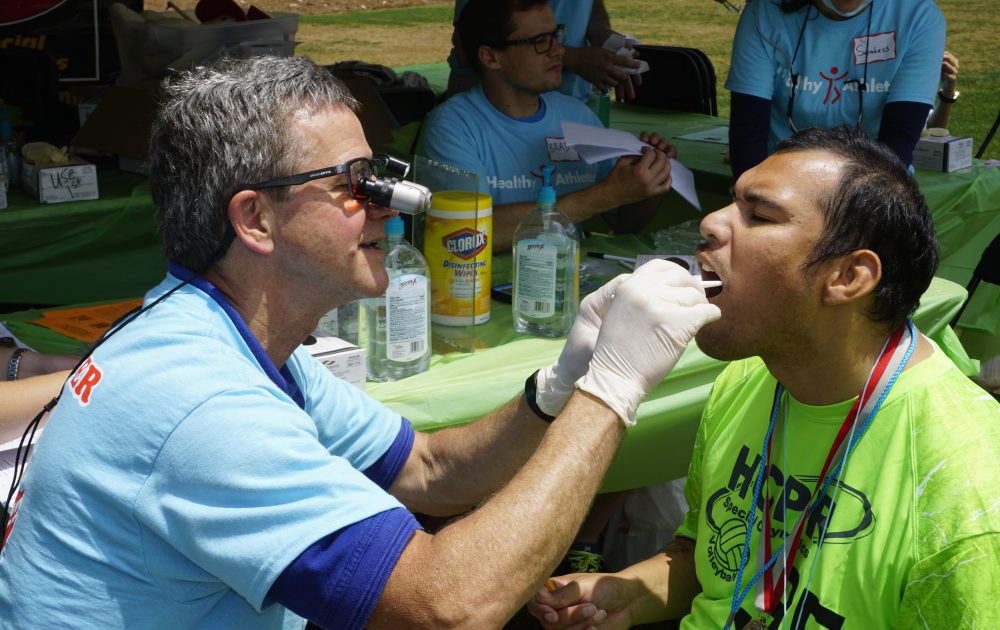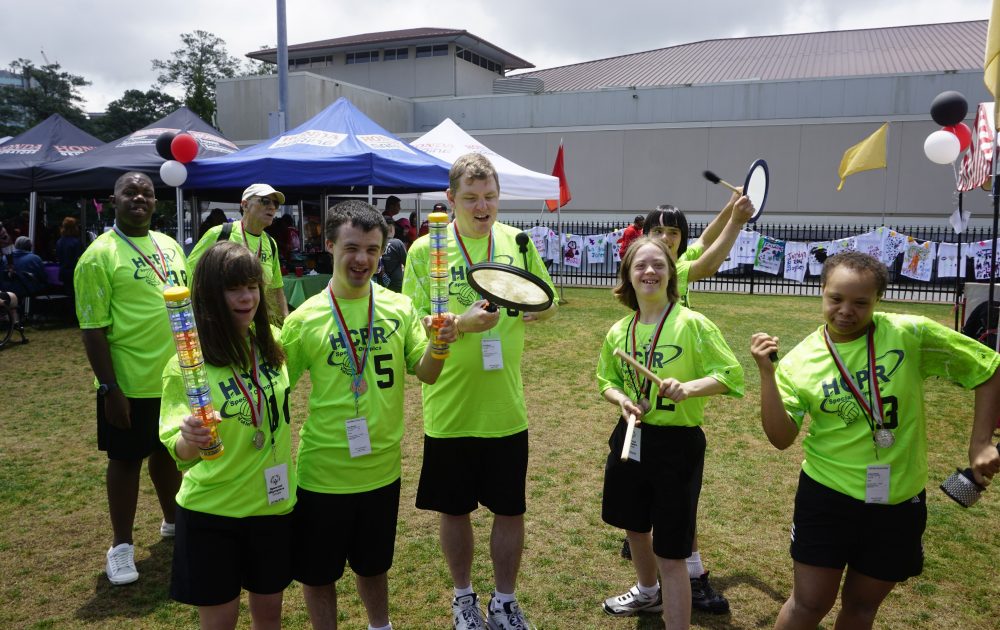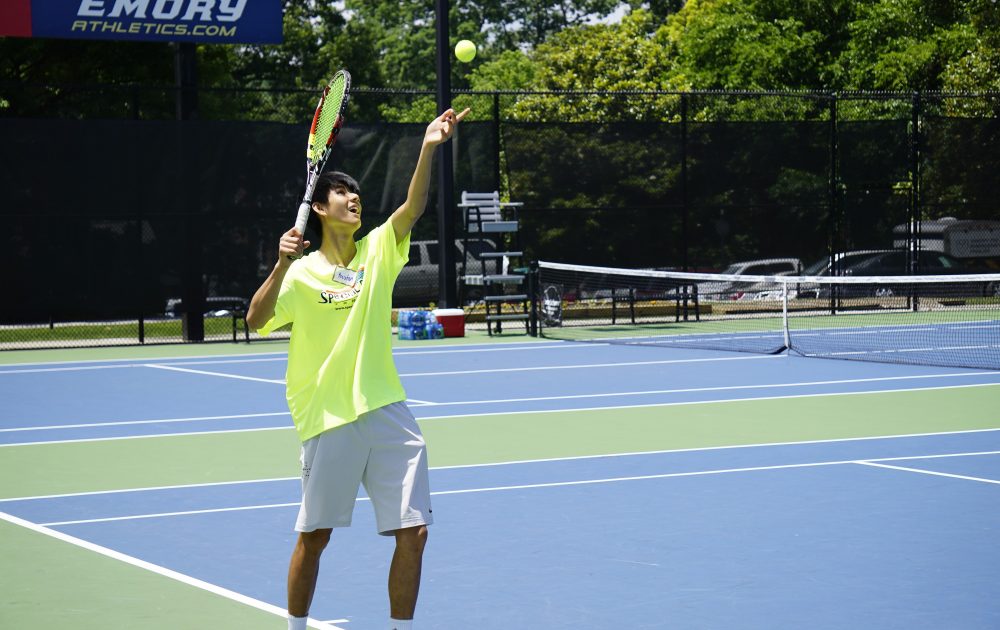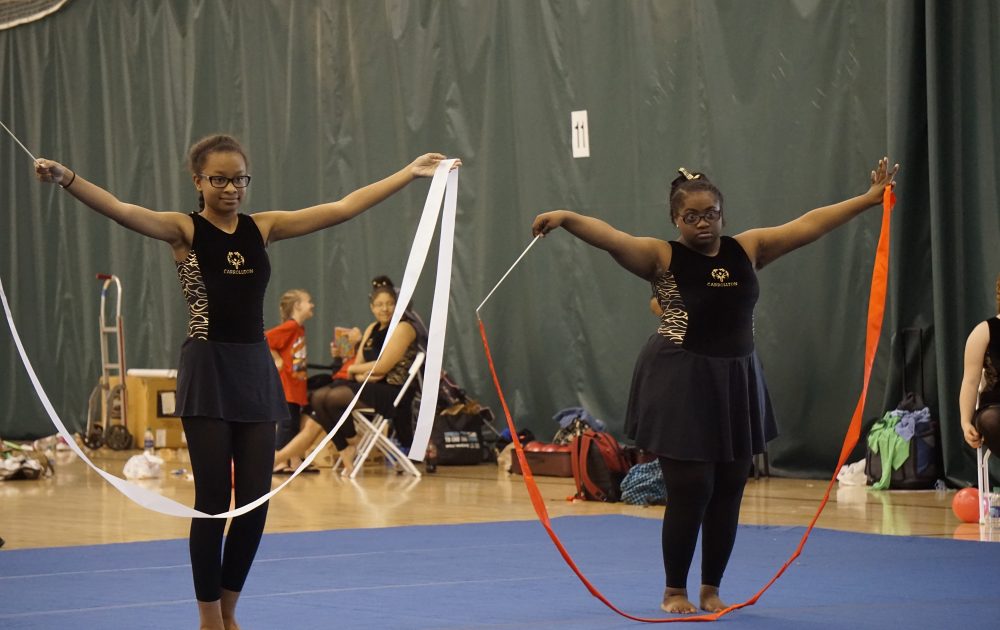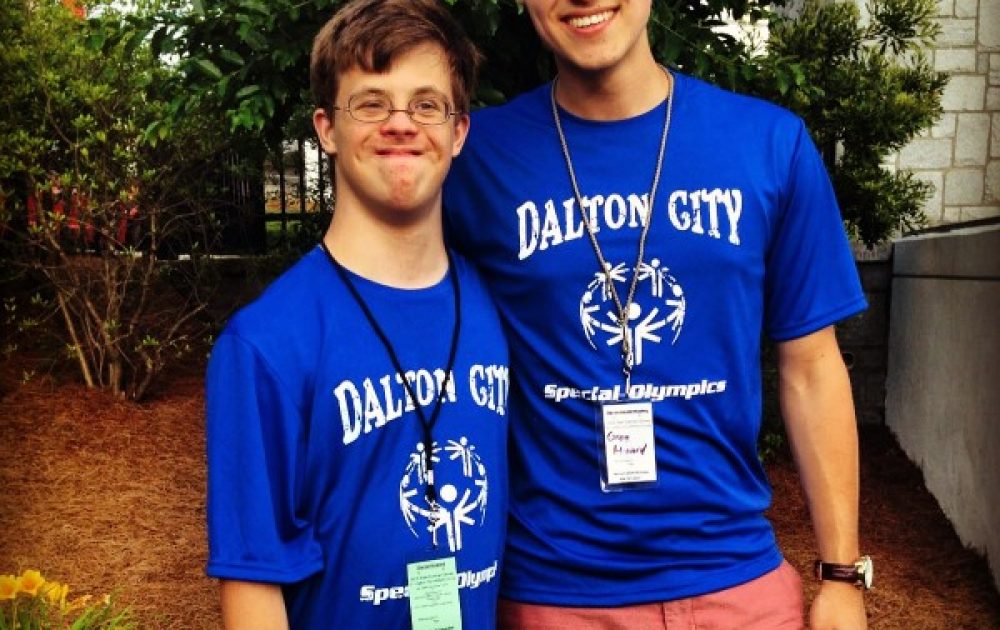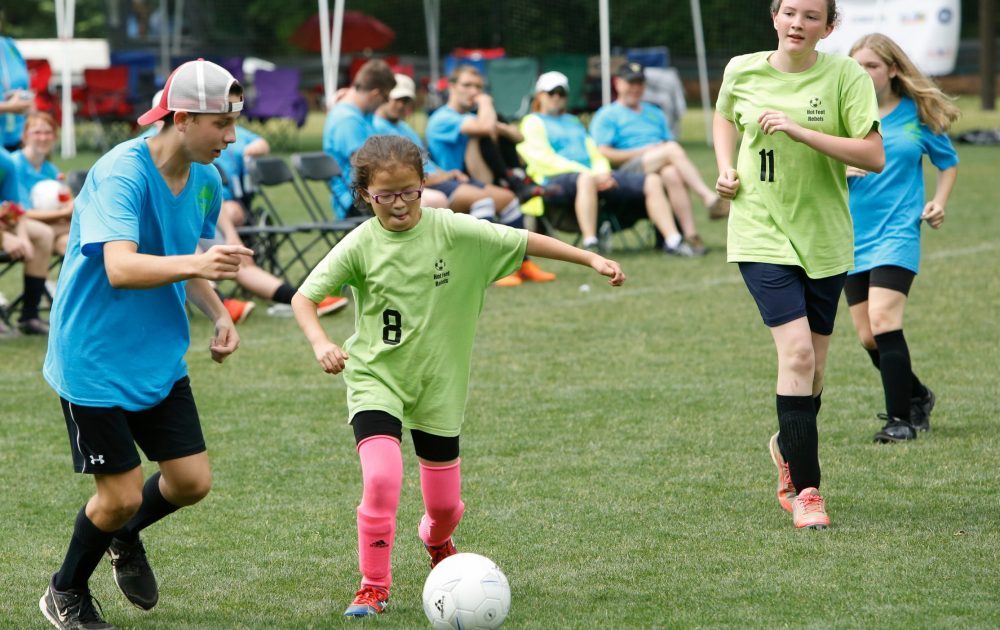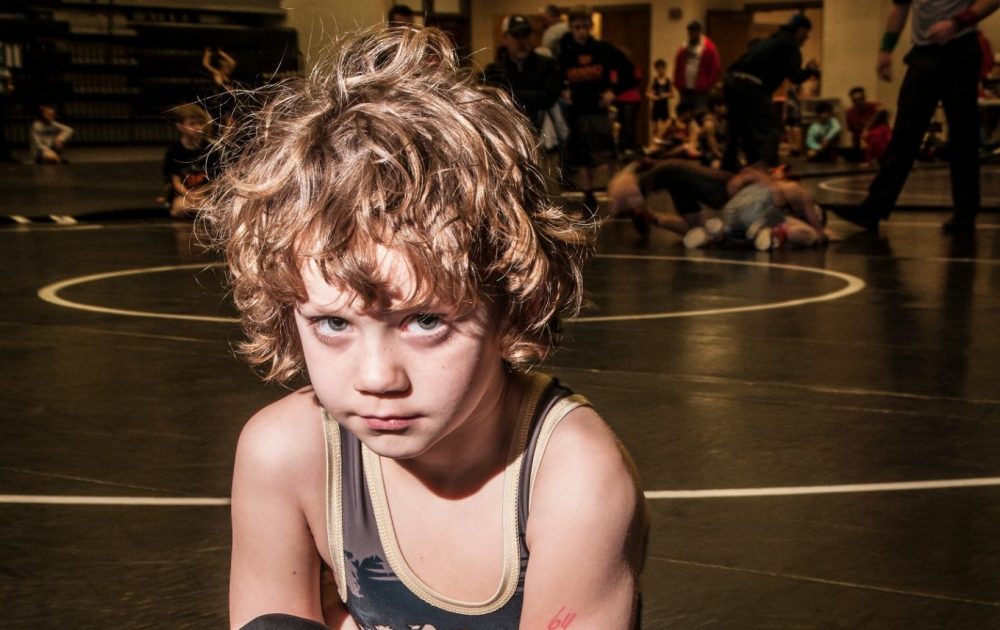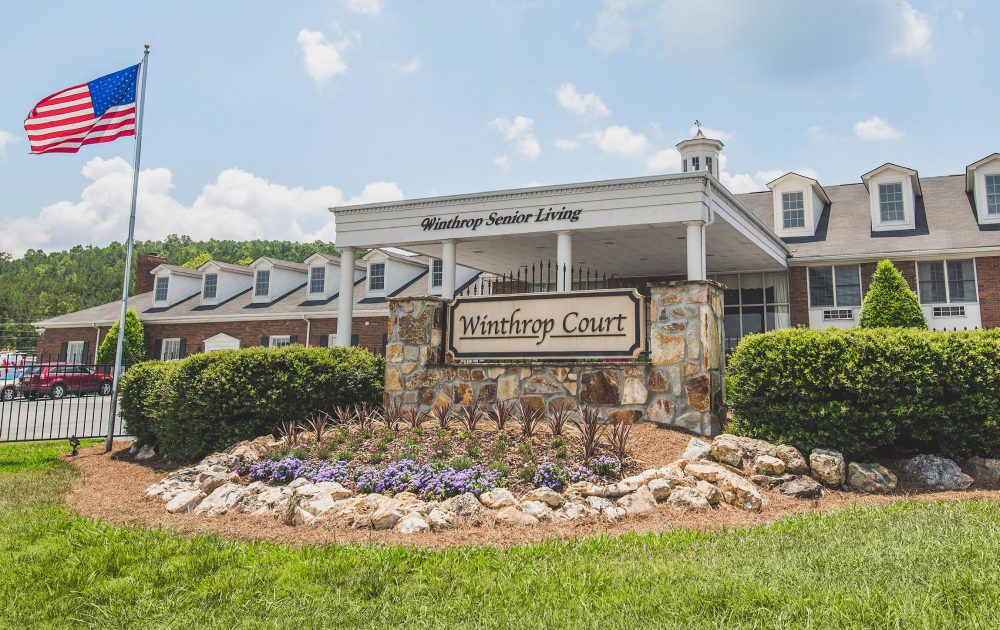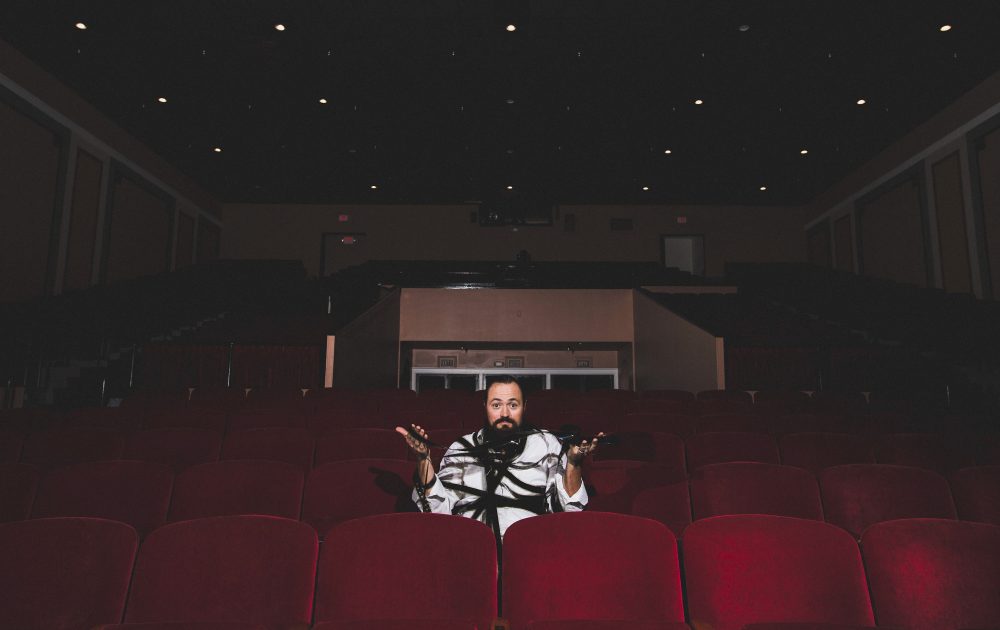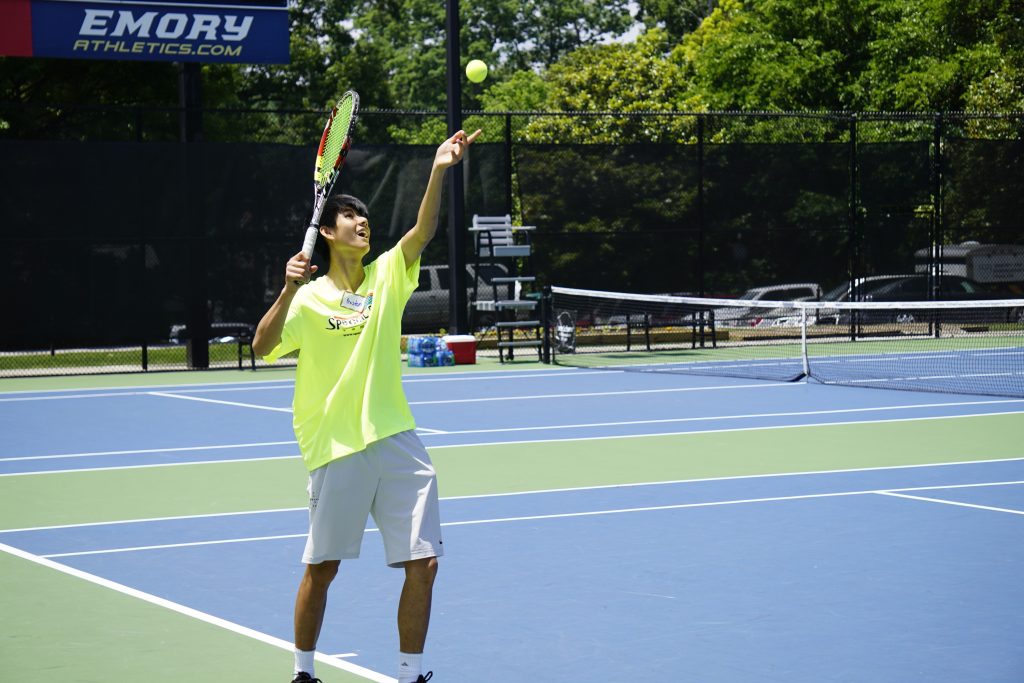
Photos provided by the Special Olympics of Georgia
Swimmers, take your mark. The crowd shifts forward, standing along the observation deck crammed elbow to elbow as eyes focus on the athletes now perched on their blocks. Along the pool, you can see the muscles of the swimmers tense in anticipation of the sound – ready for the culmination of countless weekly swim meets and the dreaded “one more lap” that pushed them further than even they believed they could go. In fact, they have gone further than most believed they could ever go. They have had to work hard to show society the gifts they possess, but today, they are showing the world just what they are capable of.
The buzzer sounds.
The swimmers leap from their blocks into the water, each neck and neck as they glide into their first lap. Welcome to Special Olympics Georgia. Atlanta was once again the site of Special Olympics Georgia’s (SOGA) annual Summer Games in May as 2,931 eager athletes, unified partners, and coaches from all over the state con-verged on Emory University. Also in attendance were 2,562 volunteers and a mass of roaring spectators, all on site to support the Special Olympians as they compete in events like swimming, soccer, long-distance running/walking, flag football, volleyball, tennis, gymnastics and table tennis.
While taking in the festivities – and watching the thousands of people involved in Georgia’s event alone – it is difficult to imagine the organization’s remarkably humble beginnings. In the 1960s, Eunice Kennedy Shriver founded the Special Olympics as a day camp for children with intellectual disabilities and hosted it in her backyard. Over the years, it has evolved into what is now the world’s largest sports organization for those with intellectual disabilities, including more than 4.5 million athletes in over 170 different countries.
Today, over 200 million people – representing approximately one to three percent of the entire human race – have been diagnosed with an intellectual disability, which is defined by the Special Olympics as “certain limitations in cognitive functioning and skills, including communication, social, and self-care skills.” It is a sad but true fact that many of these special individuals do not receive the social or even medical attention they deserve. So, it is the mission of the Special Olympics to do its part in correcting this social injustice.
Georgians can be proud to know that they host one of the largest Special Olympic organizations in the nation. SOGA provides year-round training and competition in a variety of sports for children and adults, giving them opportunities to develop physical fitness; demonstrate courage; experience joy; and participate in the sharing of gifts, skills, and friendship with their families, other Special Olympics athletes, and the community.
Swimmers, pushing their way from one end of the pool to the next. This is a scene I have observed hundreds of times, though it never fails to give me a deep feeling of pride as well as a jolt in the pit of my stomach. Today, as I stand along the side of the pool with a small journal in my hand, I’m watching my brother, Daniel Howard, “freestyle” his way across the pool.
On June 23, 1999, Daniel was born prematurely and diagnosed with Down Syndrome, making him one of approximately 400,000 Americans who share this chromosomal anomaly. The day my brother came home, my father took me to our special spot by the creek and told me how things were going to be different. He was right. I couldn’t imagine what my life would be like without my brother being the special little man my family and all those around him love.
Daniel is, to my family and those that have been lucky enough to take a small part in his life, a true example of what it means to love someone at its most simple definition. Daniel enjoys a multitude of activities, from listening to the best of Elvis and all things rock ‘n’ roll to taking an active role in the small church in our hometown. Daniel has lived his now 15 years on this earth having never met a stranger, nor has he ever missed an opportunity to give random hugs as we make our way through Walmart.
My mother, Mary Margaret Howard, a woman I have come to respect and increasingly admire the more I’m around her, truly knows how much swimming on a team has meant to Daniel. “I started teaching him to swim when he was about 6 years old,” she remembers. “It took quite a while for him to develop good strokes, but it was always evident that he had a natural talent for swimming.”
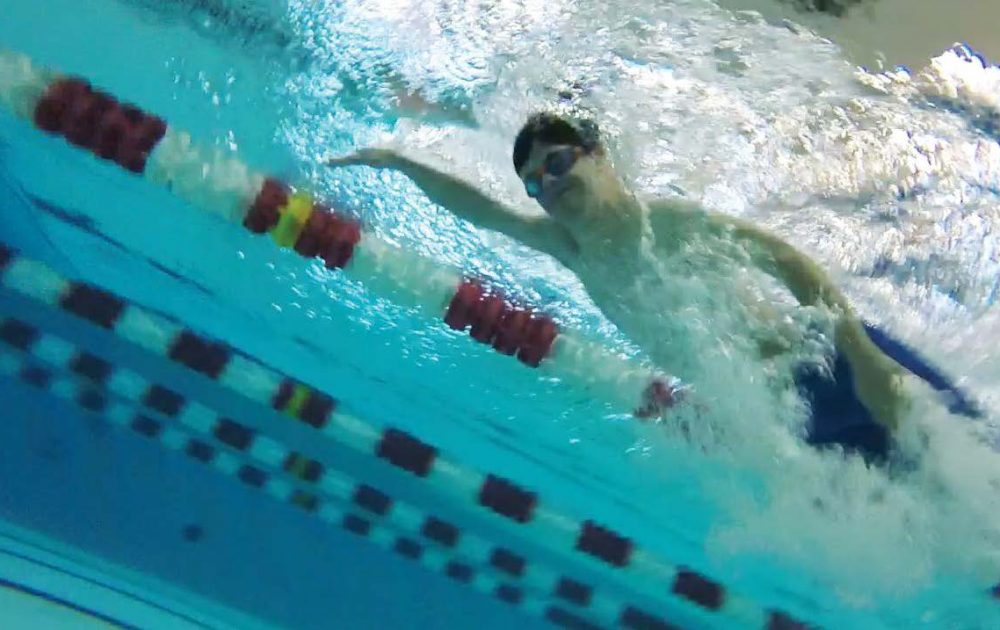
Daniel was fortunate to be able to join Dalton City Sea Dragons, a Special Olympics swim team in Dalton, Ga. My mother loves to share just how much Special Olympics has impacted my brother.
“The Special Olympics has benefited Daniel in many ways, giving him a reason to stay physically fit and a sense of independence. It has also helped him to make new friends,” she says. “Everyone needs a goal to work toward and swimming provides this for Daniel.”
My mother, more than anyone, knows what truly makes my brother so special. “(Daniel) is excited about life, and has fun wherever he goes,” she says. “He is free of prejudice and greed; others like to be around him because he accepts people as they are … Down Syndrome does not define Daniel; it is simply a part of who he is.”
According to Daniel, who took home two silver medals and a bronze at this year’s summer games, the secret to being a great swimmer is very simple. “You have to work hard,” he says. “I love swimming with my friends … the crowd cheers loud. It feels great to win medals, and that’s it.”
Daniel’s story, though completely his own, is just one of the many success stories present at this year’s games.
Another member of the Dalton City Sea Dragons, Matt Jones, has also had his share of wins. Now 24, he has been competing in the Special Olympics with the team for many years and has earned his place as first on the team.
Like my brother, Jones also knows the value of hard work. “I have gotten better by practicing a lot,” he says. “I have set goals for myself and worked hard to reach them.”
This year, Jones and the team celebrated as he achieved his goal of qualifying for the national games. “I want to travel around the world and compete – and be as good as Michael Phelps!” he says.
Jones has quite the entourage, but of all his fans, his mother, Deanne Jones, is by far the most proud of her accomplished athlete. “[I’m] extremely proud – and a bit emotional – to see Matt set goals for himself and succeed,” she says.
This is, in fact, one of the primary objectives of the Special Olympics.
“[It] truly helps encourage those with intellectual disabilities to not only set goals, but to reach them,” she adds.
The Special Olympics gives every special needs child a chance to compete regardless of physical limitations. Through the Special Olympics Unified Sports Program, athletes with a disability can participate alongside what the organization calls unified partners. These special volunteers are also athletes, allowed to play and assist where needed within their teams.
According to Christy Weir, director of global media and public relations for the Special Olympics, this year marks an all-time high for this program. “Thanks to recent growth and aware-ness, over 600,000 Special Olympics athletes and over 650,000 of their teammates have registered to participate [this year],” Weir says.
This year’s Summer Games marks the second for unified partner Janna Plemons of Dalton, Ga. A 20-year-old early childhood education major at Dalton State College, Plemons has discovered a new passion through her work with the Dalton City Sea Dragons.
“[Through] my work with the team, I have gained a passion for the special needs community,” she says. “Seeing athletes gain confidence due to the Special Olympics makes me feel accomplished.”
Plemons tells the story of one athlete she worked with during weekly practices. “It was his first year on the team, and … he wasn’t able to perform the front stroke correctly,” she explains. “After hours of practice and hard work, something clicked right before the games and he swam an entire 50 meters without stopping. I almost got him disqualified for yelling!”
My family, just like the countless other families and friends making up the crowd at this truly unique sports competition, is blessed. We are blessed to have someone in our lives who constantly reminds us that you can defy the odds that are against you; love the ones around you for exactly who they are; and smile, even when the world may not give you reason.
These special athletes are here to compete and to win if they can, but more importantly they are here standing for something much greater than themselves. As is traditionally stated before the start of any Special Olympic games, “Let me win, but if I cannot win, let me be brave in the attempt.”

